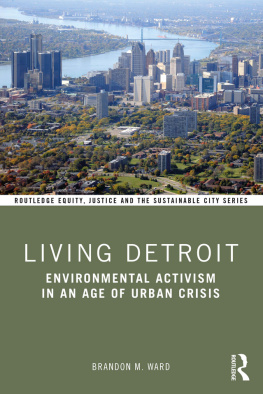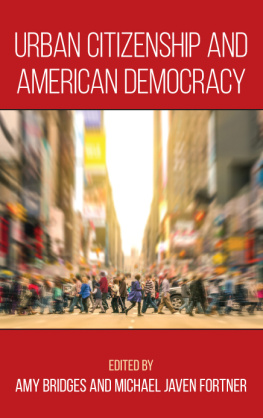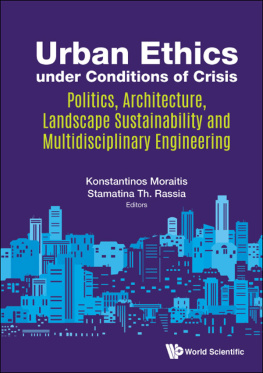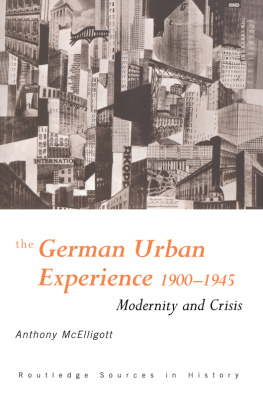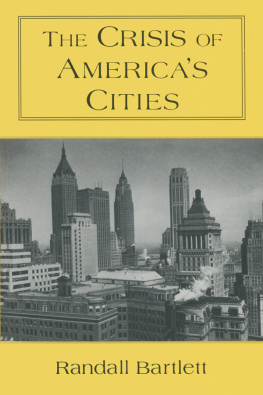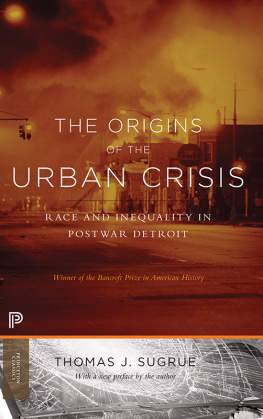ABOUT THE CONTRIBUTORS
Houston A. Baker was born in Louisville, Kentucky. He received his bachelors from Howard University and his masters and doctorate from the University of California at Los Angeles. He has taught at Yale, University of Virginia, University of Pennsylvania, and Duke. He is currently Distinguished University Professor and professor of English at Vanderbilt University. His awards and honors include Guggenheim and National Endowment for the Humanities Fellowships, resident fellowships at the Center for Advanced Study in the Behavioral Sciences and the National Humanities Center, and honorary degrees from a number of U.S. colleges and universities. He has served as president of the Modern Language Association of America and is the author of articles, books, and essays devoted to African-American literary criticism and theory. His book, Betrayal: How Black Intellectuals Have Abandoned the Ideals of the Civil Rights Era , received an American Book Award for 2009.
Joshua Bassett , co-editor, is director of the Institute for Social Progress (ISP), a nationally affiliated civil rights and educational institute, located in Detroit, Michigan. As director of the ISP, Bassett has conducted numerous civil rights efforts aimed at redressing inequalities in Detroit and metro Detroit, including work with the Kirwan Institute for the Study of Race and Ethnicity, at the Ohio State University, and the Center for Social Inclusion (NYC). He served as executive director of the Educational Summit: Detroit and the Crisis in Urban America conference (broadcast nationally on C-SPAN), as well as the national Rebuilding Lives criminal justice conference, held in Detroit in 2004. Prior to this book, his scholarship has focused on the June 2007 Supreme Court ruling against voluntary integration programs in Seattle, Washington and Louisville, Kentucky school districts ( Parents Involved in Community Schools v. Seattle School District No. 1 ), which he conducted via the Kirwan Institute. His current academic work concerns the application of semiotic theory to studies of color-blind ideology.
Dr. Grace Lee Boggs , born to Chinese immigrant parents in 1915, is an activist, writer, and speaker, whose seventy years of political involvement encompass the major U.S. social movements of the twentieth century: labor, civil rights, black power, Asian American, and womens and environmental justice. In 1940, she received her doctorate in philosophy from Bryn Mawr College. In the 1940s and early 1950s, she worked with West Indian Marxist historian C.L.R. James. In 1953, she came to Detroit, where she married James Boggs, African-American autoworker, labor and community activist, and writer. Working together in grassroots groups and projects, they were partners for more than forty years until Jamess death in July 1993.
In 1974, they co-authored Revolution and Evolution in the Twentieth Century , which Monthly Review Press reissued in 2008 with a fifty-page introduction by Grace. In 2011, Wayne State University Press published the James Boggs Reader .
Graces autobiography, Living for Change , is widely used in university classes. Her latest book, with Scott Kurashige, is The Next American Revolution: Sustainable Activism for the 21st Century .
Besides many lifetime achievement awards, Grace has received four honorary doctorates: Wooster College, 2002; Kalamazoo College, 2007; the University of Michigan, 2009; and Wayne State University, 2010. The University of Michigan citation reads: You have been dynamically transformative in a pivotal epoch of human history, which you have illuminated through bold activism and thoughtful writing, providing the world with inspiring reflection and vigorous calls to action. By nurturing Detroit as a city of Hope, you have brought optimism and inspiration to our state and country.
Benjamin DeMott was a member of the Amherst College English faculty from 1951 until his retirement in 1990. He was a widely respected literary critic and social commentator and was the author of more than a dozen books, including The Imperial Middle: Why Americans Cant Think Straight About Class , The Trouble with Friendship: Why Americans Cant Think Straight About Race , and Killer Woman Blues: Why Americans Cant Think Straight About Gender and Power. He was also a frequent essayist for popular publications, including the Atlantic and Harpers . In May 2005, the New York Review of Books published an essay he had written on Reclaiming the Game: College Sports and Educational Values. DeMott died on September 29, 2005, at his home in Worthington, Massachusetts. He was eighty-one years old.
Erica Frankenberg is an assistant professor in the Department of Education Policy Studies in the College of Education at the Pennsylvania State University. Her research interests focus on racial desegregation and inequality in K12 schools, and the connections between school segregation and other metropolitan policies. Prior to joining the Penn State faculty, she was the research and policy director for the Initiative on School Integration, at the Civil Rights Project/Proyecto Derechos Civiles at UCLA. She received her doctorate in educational policy at the Harvard University Graduate School of Education and her AB, cum laude, from Dartmouth College. She was a research assistant for the Civil Rights Project when it was at Harvard University. Projects included developing and analyzing a national survey of teachers racial attitudes and studying the connection between school and housing segregation. Before graduate school, Ms. Frankenberg worked with a nonprofit educational foundation focused on improving the public schools in her hometown of Mobile, Alabama.
She is the co-editor of Lessons in Integration: Realizing the Promise of Racial Diversity in Americas Schools (with Dr. Gary Orfield), published in 2007. In 2006, Frankenberg helped coordinate and write a social science statement that was signed by 553 social scientists and filed with the Supreme Court, regarding the benefits of integrated schools. Some of her Civil Rights Project work has been cited by the Supreme Court in its recent educational diversity cases, Grutter v. Bollinger and Parents Involved in Community Schools v. Seattle School District No. 1 . Her work has also been published in education policy journals, law reviews, housing journals, and practitioner publications. She is currently coordinating a study of suburban racial change, funded by the Spencer Foundation.
Henry Louis Gates, Jr. serves as the Alphonse Fletcher University Professor at Harvard University, where he is director of the W.E.B. Du Bois Institute for African and African American Research. Professor Gates is an accomplished man, a literary critic, educator, scholar, writer, editor, and public intellectual with many accolades and a great deal of knowledge to share. The recipient of nearly fifty honorary degrees and many social and academic awards, Professor Gates was named by Time magazine as one of the 25 Most Influential Americans, in 1997.
Professor Gates is the author of several works of literary criticism, including Figures in Black: Words, Signs and the Racial Self ; The Signifying Monkey: A Theory of Afro-American Literary Theory , and Loose Canons: Notes on the Culture Wars , as well as being the 1989 winner of the American Book Award. He has also authored Colored People: A Memoir , which traces his childhood experiences in a small West Virginia town in the 1950s and 1960s; The Future of the Race , co-authored with Cornel West; and Thirteen Ways of Looking at a Black Man . Professor Gates has edited several anthologies, including The Norton Anthology of African American Literature and The Oxford Schomburg Library of Nineteenth Century Black Women Writers . In addition, Professor Gates is co-editor of Transition magazine. An influential cultural critic, Professor Gatess publications include a 1994 cover story for Time magazine on the new black renaissance in art, as well as numerous articles for the New Yorker . He wrote and produced the PBS documentary, African American Lives, the first documentary series to employ genealogy and science to provide an understanding of African-American history.


